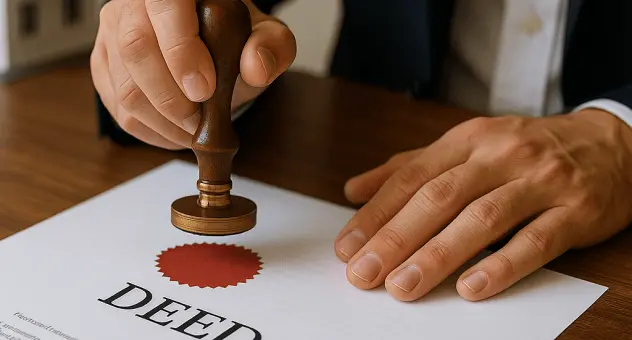What is Deed?
Deeds are legal documents that transfer ownership of property. They are used during sales or gifts of real estate. Explore our Texas-specific templates for your needs.
In Texas, Deeds are essential documents for property transfers. Our attorney-drafted templates are quick and simple to complete.


Get all the essential forms for owner-financed real estate transactions in one convenient package.
Get all the essential forms for owner-financed real estate transactions in one convenient package.
Use this agreement to outline the terms for purchasing nonresidential property directly from the seller, ensuring secure payments and conditions.
Transfer property ownership between individuals with no warranties or guarantees.
Create a life estate with the flexibility to retain property control until death, allowing for smoother asset transfer without probate complications.
Use this document when transferring property between individuals, offering specific protections to the grantee while maintaining certain liabilities for the grantor.
Ideal for couples, this deed allows property ownership with specific rights, including transfer upon death without probate.
Use this form to legally transfer property ownership between individuals, ensuring a clear title and defined boundaries.
Transfer ownership of oil, gas, and mineral rights from an individual to a corporation with this essential legal document.
Transfer property ownership between partners easily and securely, ensuring clarity about joint ownership rights.
Secure your property while retaining control during your lifetime and ensuring a smooth transfer to heirs with this specialized deed.
Deeds must be signed by the grantor to be valid.
Most deeds in Texas require notarization to be effective.
Property descriptions must be clear and specific in deeds.
Different deeds serve distinct purposes in property transactions.
Deeds can be revoked or modified under certain circumstances.
Failure to record a deed may affect ownership rights.
Deeds are crucial for establishing legal ownership of property.
Begin your process quickly with these easy steps.
Deeds are used to transfer ownership of real property between parties.
Yes, a Deed is necessary for transferring property ownership legally.
The type of Deed depends on your specific situation, such as sale or gift.
Yes, but you may need to create a new Deed or an amendment.
Failure to record a Deed may result in ownership disputes.








